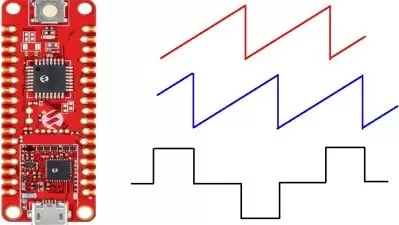About Electrical EngineeringLearn More
Electrical engineering is a deep field with numerous disciplines. Overall, though, electrical engineers develop new electronic technologiesto ensure that the demands of new electronics don’t overwhelm the electrical systems they rely on.
Sort by:
Sorting
The newest
Most visited
Course time
Subtitle
Frequently asked questions about Electrical Engineering
Electrical engineering is the design, production, analysis, and testing of different electronic circuits and systems. This includes computers and personal electronics, such as cell phones and tablets. It also includes the electronics underlying household equipment, such as microwaves and refrigerators. In addition, the electrical components of cars and airplanes are also designed through electrical engineering. Power engineering, a branch of electrical engineering, includes the design, development, and troubleshooting of systems used to generate and distribute electricity for industrial and residential use.
Jobs for electrical engineers can be wide-ranging. Some electrical engineers work on basic circuit design. This can include any electronic circuit, from dishwashers to computers, stereo systems to satellites. Other electrical engineers may work as test engineers. Test engineers will analyze, measure, and confirm the function of a circuit through laboratory analysis. Test engineering is important for verifying that a circuit works as designed. Power engineers are another type of electrical engineer that may be called on to design, troubleshoot, or improve power transmission systems for home and industrial use. Electrical engineers specializing in radio frequencies will often work in the telecom industry designing and testing wireless communication equipment. Electrical engineers focused on signal processing are often involved in producing and analyzing electrical signals from test and measuring equipment.
Being skilled in circuit design and analysis is the foundation underpinning electrical engineering. Understanding digital and analog electrical systems is also key. Proficiency in computer aided drawing (CAD) is highly valued since CAD is used heavily in circuit layout and design. Being skilled with MATLAB and PSPICE, software packages that are frequently used for circuit analysis, can also be very helpful. In addition, depending on the type of electrical engineer, being skilled in power system or radio frequency design may be fundamental. A solid background in math and science is also essential, and computer programming can be helpful. Engineers often work in teams, so having good communication skills, listening abilities, and a willingness to collaborate is often necessary to excel as an electrical engineer as well.
The short answer is yes; electrical engineering requires math and computer programming. To analyze electronic circuits, calculus and advanced math are required. Computers often simplify mathematics for engineering analysis; however, it is still important for electrical engineers to understand the applied mathematics. While electrical engineering jobs are requiring minimal programming skills, most university curricula will include computer programming coursework. Being adept at computer programming also significantly expands the skillset that you can bring to a job. Numerous electrical systems require computer programming to function. Often, electrical engineers that know programming can be a good fit for producing computer programs needed for different types of electronics. Some basic electronic circuit analysis tools also work through computer programming techniques.
Electrical engineering can be divided into different subfields: circuit design, digital design, power, radiofrequency, and signal processing, among others. Circuit design is typically focused on the design and layout of circuits to be implemented on circuit boards or individual integrated circuits (computer chips). Digital design is more heavily focused on logic systems. These systems use two states, on and off, that can change based on other parameters. Digital logic is the underpinning of all modern computers. Power engineering is a subfield focused on electrical power generation and distribution. Radiofrequency engineers are focused on high-frequency circuit design used mostly in wireless communication systems. Signal processing engineers analyze and process signals from different measuring devices, such as digital thermometers, imaging systems, microphones, or other analysis equipment.









